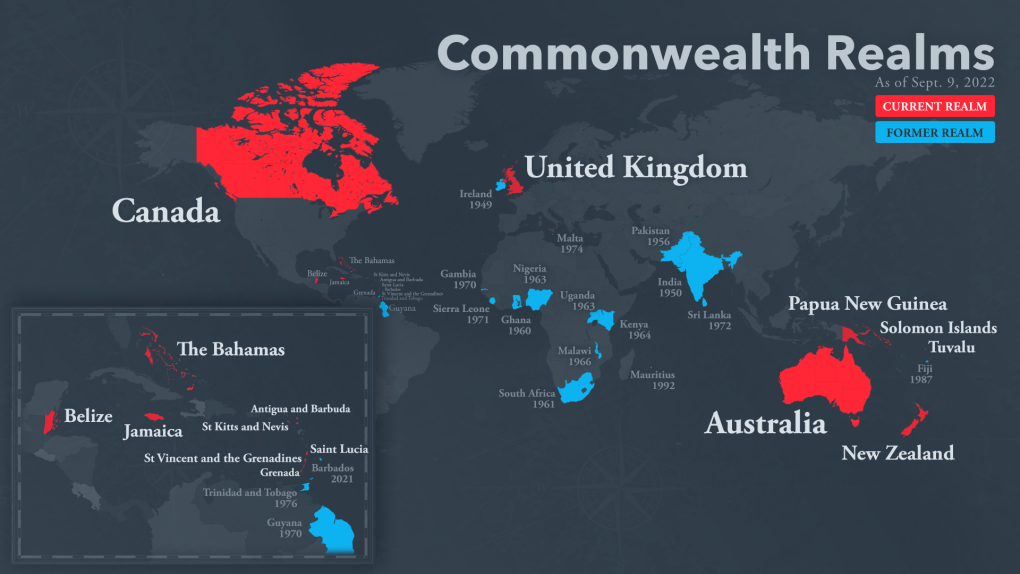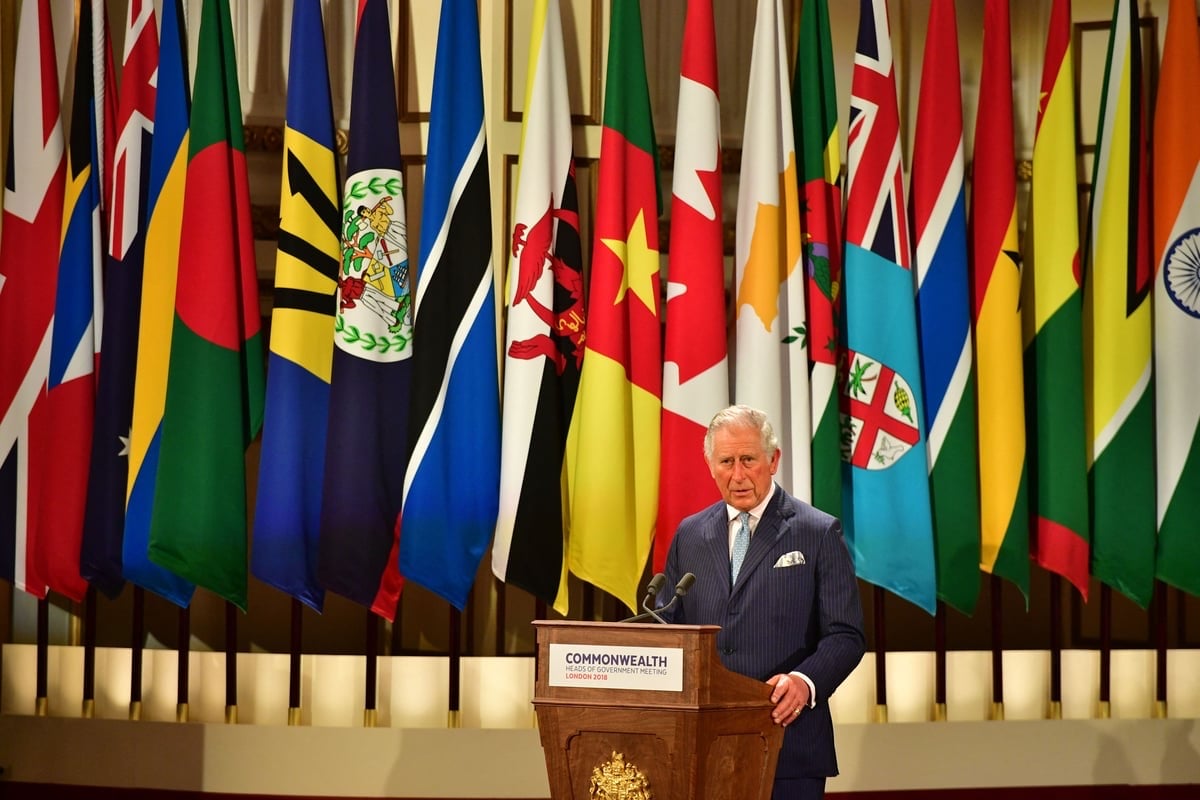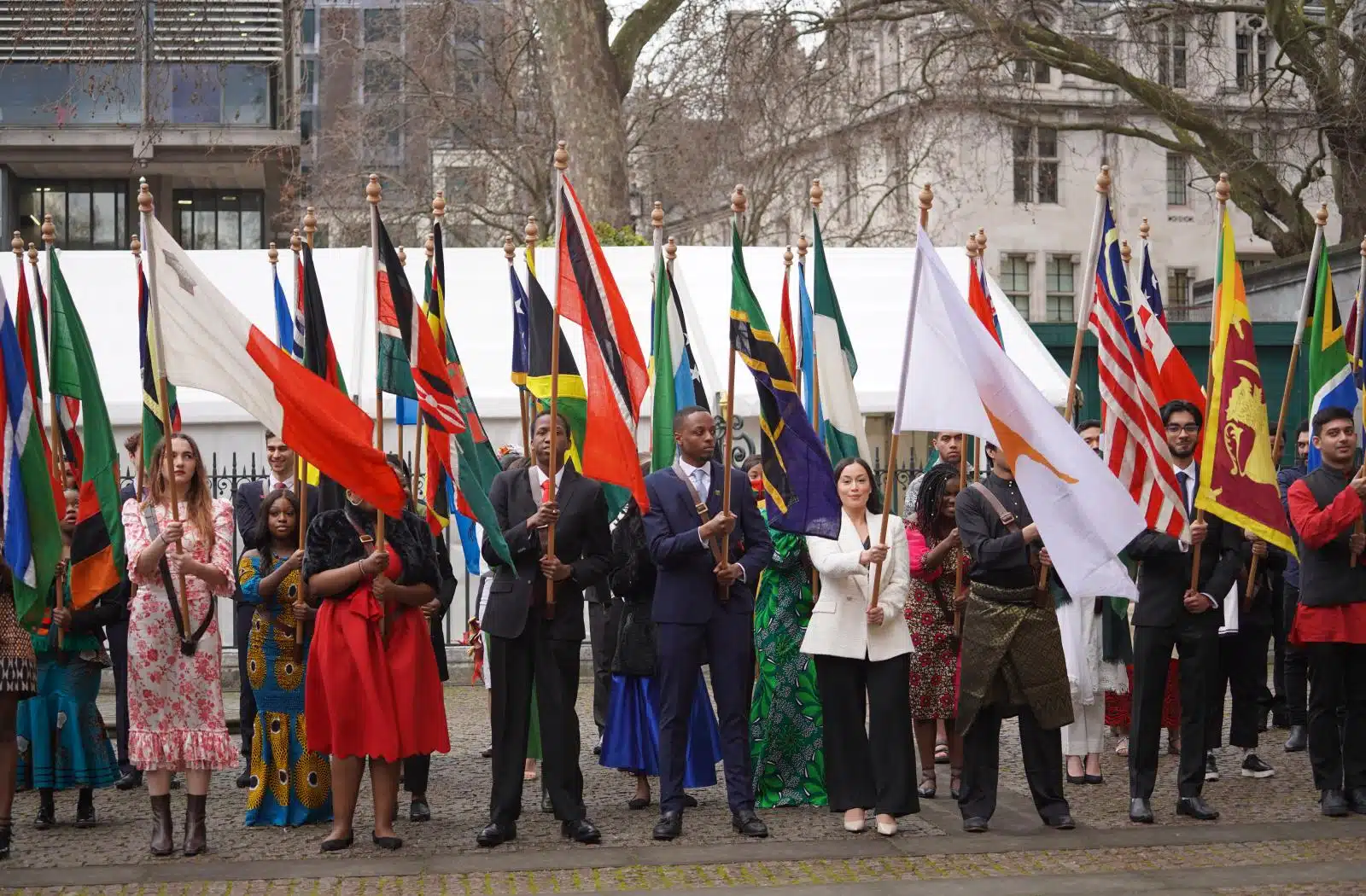A Postponed Reckoning: Can the Commonwealth Realms Secede From the British Monarchy?

After protocol arrangements that lasted for months, on May 6, 2023, in a grand ceremony whose rituals extend for more than 1,000 years, Charles III was crowned king of the United Kingdom and the Commonwealth realms.
However, all this did not bring happy news to the new king. Instead, due to the event, there have been new demands for him to apologize for his country’s colonial history in a number of countries that still fall under the British monarchy.
Some of these countries went so far as to openly express their intention to break away from that painful past, for which the British crown is still a souvenir inherited from it.
With domestic public opinion divided over Britain’s monarchy, recent visits by King Charles have seen the rise of anti-monarchists in the country, along with calls for referendums on independence from Scotland, Wales, and Northern Ireland.
The monarchy in Britain is witnessing a sensitive period of transformation, as the reign of the late Queen Elizabeth II witnessed great family turmoil, but it was generally a stable and supportive period for the continuation of the monarchy in the country.
However, the most profound question remains: Will King Charles III push the remaining countries in the Commonwealth realms to move towards independence from the authority of the British monarchy?
British Monarchy
King Charles III seeks to preserve the monarchy that overshadows the UK and the 14 other Commonwealth realms, knowing that the younger generation yearns for change.
Commonwealth realms are countries: Canada, Australia, New Zealand, Jamaica, Solomon Islands, The Bahamas, Belize, Grenada, Antigua and Barbuda, Papua New Guinea, Saint Kitts and Nevis, Saint Lucia, Saint Vincent and the Grenadines, and Tuvalu.
It is worth noting that the Commonwealth realms differ from the Commonwealth of Nations, which is a large group of 54 countries that were once part of the British Empire, but most of them are no longer subject to the monarchy, as dozens of newly independent states emerged from the remnants of the British Empire in the wave of decolonization that occurred after World War II.
A recent poll conducted by Michael Ashcroft, former head of the UK Conservative Party, revealed that nearly half of the countries in the Commonwealth realms support the idea of getting rid of the British monarchy.
The poll, which included 22,000 people in the Commonwealth realms, indicated that citizens of 6 countries would vote in favor of abandoning the monarchy if a referendum was held after the coronation, including: Australia, Canada, Jamaica, The Bahamas, Solomon Islands, Antigua, and Barbuda.
As another example, the First Minister of Scotland, Humza Yousaf, and First Minister of Wales, Mark Drakeford, and not far from them is the position of Sinn Fein’s leader in Northern Ireland, Michelle O’Neill, while this comes amid increasing demands for the king to apologize for his country’s colonial past.
Many Commonwealth realms have taken the change of monarch as an opportunity to reconsider their relationship with Britain.
At the top of the list is the Australian government, that is accelerating the pace of abandoning the monarchy. In addition to the keenness of the Caribbean countries in particular to break away from the imperial past, which is characterized by slavery and oppression.
Meanwhile, in Britain, the Republicans may be an isolated minority; in the Commonwealth realms, they are an increasingly prominent force.
It would be unsurprising if Charles’ reign ends with the British monarch nominally ruling over far fewer countries than at its start.

Britain’s Colonial History
Caribbean member states of the Commonwealth realms are leading calls to reassess their relations with the United Kingdom, as reported by Al-Majalla on May 19, 2023.
These countries are subject to the control and rule of the descendants of slaves who were forced by Britain to come to the islands to work in the fields of sugar and other plantations.
Many Caribbean governments, alongside their supporters in the UK and elsewhere, have urged London to formally apologize for its extensive role in the slave trade. Some sought financial compensation, driven by the anti-racism awakening revived by black rights movements around the world.
The case is finally gaining some traction in the UK, as revealed by The Guardian on May 4, 2023, including King Charles’ agreement to cooperate with the investigation into former monarchs’ links to slavery, while Prince William expressed his deep regret over slavery during a trip to Jamaica in 2022.
But the UK government itself has shown no sign of apologizing, with Prime Minister Rishi Sunak recently stating, “Trying to unpick our history is not the right way forward, and it’s not something that we will focus our energies on.”
Given the association between Britain, slavery, and empire, it is unsurprising that Republicanism in Caribbean Commonwealth countries is on the rise.
Even before Elizabeth II died, Barbados renounced the crown in 2021, while her death prompted Antigua and Barbuda to announce it will hold a referendum on doing the same.
The Prime Minister of Belize, outraged by Sunak’s refusal to address the slavery reparations issue, said in the week before the coronation that he would seek to move his Central American state to become a republic.
After the coronation ceremony of Charles III as King of the UK and the Commonwealth realms, Jamaica, Saint Kitts and Nevis, Saint Vincent, and the Grenadines expressed their intention to change the regime there to republican rule.
Since Barbados broke away from the British throne and became a republic, observers have agreed that Jamaica has been the closest the Commonwealth realm has come to following in the same footsteps.
In turn, Marlene Malahoo Forte, Jamaica’s minister for legal and constitutional affairs, made it clear in statements to Sky News on May 4, 2023, that her country is determined to hold a referendum on secession from the British monarchy as soon as possible.
“It is likely that this referendum will take place by 2024,” she added.
“While the UK celebrates the king’s coronation, that is up to the UK. Jamaica is looking forward to writing a new constitution, which would sever ties with the king as our head of state,” the minister said.
Earlier this year, Jamaican Prime Minister Andrew Holness told the Duke of Cambridge, Prince William, of his country’s intention to separate from the rule of the Windsor family.
Opinion polls indicate that more than 50% of Jamaicans support becoming a republic.
Minister Malahoo Forte described Jamaica’s timetable for secession as ambitious, as it requires public consultations and the submission of a bill to parliament, which she hopes to present this month, and ratification may take 9 months.
In the conclusion of her speech, the minister stressed that “the time has come for Jamaica to be in the hands of the Jamaicans … My government believes that we do this now, that we say goodbye to the British monarchy.”

A few days before the coronation of King Charles III, Belize Prime Minister Johnny Briceno said his country was very likely to be the next country to leave British crown rule to become a republic.
The state of Belize also suffered the horrors of the British colonial past, which is what drives it today to the option of breaking with the British monarchy, according to what the PM revealed.
This was before he criticized the British PM, Rishi Sunak, for his silence about apologizing for this colonial history.
PM Briceno said, “Given Sunak’s origins, and the atrocities committed by Britain against his ancestors, he was not silent, and it was more appropriate for him to make an official apology for what our ancestors went through.”
Recent polls indicate that 43% of Belizeans support becoming a republic.
Antigua and Barbuda was the first to raise the option of separation from the monarchy immediately after the death of Queen Elizabeth in September 2022.
Prime Minister Gaston Brown announced that his country intends to hold a referendum on becoming a republic within the next three years.
Brown described the transition to a republic as a “final step to complete the circle of independence to ensure we are truly a sovereign nation” but stressed that the referendum is not a hostile act and will not involve leaving the Commonwealth.
In the same vein, Saint Vincent and the Grenadines joined those moving towards secession from the British Crown.
This was stated by the country’s Prime Minister Ralph Gonsalves, in an interview with the BBC, saying: “The presence of a British king as president of his country is an absurdity that he would like to end his life.”
Gonsalves added that he would welcome an apology from the British state and the monarchy for the injustices of British colonial history and the slave trade that his country suffered, pointing out his belief that King Charles III is open to talking about reparations.
In Saint Kitts and Nevis, too, the government is determined to move forward toward becoming a republic.
This was revealed by the country’s Prime Minister, Terrance Drew, in recent statements, considering that his country is not completely free as long as King Charles III is its president.
He confirmed that public consultations on whether Saint Kitts and Nevis should become a republic would begin during his tenure.

End of the Realms?
Were all the Caribbean countries to follow Barbados’ lead, it would leave only six realms behind. The largest of these, Canada, Australia, and New Zealand, are also ambivalent about their future relationship with the monarchy, as reported by Al-Majalla on May 19, 2023.
Australia has a long history of republicanism. In 1999, it held a referendum on whether the queen should be replaced as head of state with a parliamentary-appointed president.
The vote was lost 55-45%, but opinion polls showed a majority favored becoming a republic, though there were divisions over the method of appointing the president.
While Charles’ coronation garnered some interest, news reports suggested a generational divide: with younger Australians expressing indifference.
The underwhelmed Australian reaction was epitomized by New South Wales’ decision to cancel an illumination of Sydney Opera House to commemorate the coronation for budgetary reasons, despite having done so to mark the queen’s death last year.
It was also determined that, unlike his mother, Charles would not be appearing on the $5 banknote.
New Zealand’s Prime Minister, Chris Hipkins, meanwhile, recently stated that he favored his country becoming a republic in the future, though it was not an immediate priority
That said, recent polls suggested only 36% of Kiwis wanted to become a republic, while 48% were happy to remain under the crown.
A series of referendums in 2015-16 saw voters opt to retain the current New Zealand flag, which contains Britain’s Union Jack, suggesting attachment to Britain might still be strong.
Canada also appears to have mixed views on the monarchy but, like New Zealand, seems in no rush to remove Charles.
Recent straw polls by Leger suggested support for the monarchy has dropped, with 56% suggesting Canada should reconsider its ties to the monarchy.
But Prime Minister Justin Trudeau stated there was no appetite to explore the question now, and there appears to be little enthusiasm or agreement on what might replace the king.
Unlike Australia and New Zealand, the proximity of the United States has historically made Canada more attached to Britain and the monarchy as a way of first defending and then defining itself against its southern neighbor, something that looks unlikely to change for a while.

The contrasting views of Australia, New Zealand, Canada, and the Caribbean states on the monarchy prompt the same question each time: why retain a British head of state?
A second, bigger question for these realms, as well as the wider Commonwealth members, is why remain in this British club at a time when Britain is evidently in decline globally.
Even were Jamaica and other Caribbean states, as well as Australia in the future, to become republics, most would likely remain in the Commonwealth, as Barbados did in 2021.
However, it is questionable whether Charles has the charm and respect to bind the club of nations together in the way his mother did.










